Northern Iwate Transportation
Northern Iwate Transportation, which is a bus company in Iwate prefecture, operates a “Combi loading” bus at its bus routes, the Morioka-Miyako bus route, and the Miyako- Omoe peninsula bus route.
These two busses are the first bus in Japan which started the “Combi loading” policy.
In this Article, we would write about the “Combi loading” policy, and the results of the email interview to the Northern Iwate Transportation Ltd. Also, we would publish some photos of the bus, which were provided from the Northern Iwate Transportation Ltd. (No field survey report in this article)
Initiatives for Combi loading
In the year 2015, the “Combi loading” started by the collaboration of the Northern Iwate Transportation and the Yamato transport.
This is the first “Combi loading” bus service served in Japan, and became the model case of other succeeding “Combi loading” services in Japan.
As I mentioned earlier, this “Combi loading” service is served at 2 bus routes. I will introduce them below.
”Hito-Mono Bus”(Morioka-Miyako)
Firstly, I want to introduce the ”Hito-Mono Bus”, which means “People and luggages bus” in english, running from Morioka to Miyako. This bus is a Inter-urban express bus, and because of the High population of the 2 cities, this route earns a large number of passengers, and many busses are operated. So, you could say that this bus route is not a so-called “Local” bus route.
In this route, 1 bus is used for the “Combi loading” by the “Combi loading”, this bus route just does not carry passengers, but carries luggages which the Yamato transport wants to carry through its delivery center in Morioka, to the delivery center in Miyako.
The bus which is used for the “Combi loading” is a specially modified type, which has a special luggage room in the back side of the bus, and the body is done a special wrapping which indicates the bus is for “Combi loading”. As the guest room is remodeled, the capacity will be reduced. Therefore, it is operated in timme when there are a few customers.
In addition, it seems that it responds by continuing operation when there are uncarried baggages in the busy season.
Because there is only 1 special modified bus, only 1 “Combi loading” bus per day is operated. Therefore, if the bus needs to suspend its operations because of circumstances such as automobile inspection, the “Combi loading” would stop, and a normal bus and truck would each carry the passengers and the luggages.
The delivery of refrigerated flights of Takkyubin, so-called "cool flight" is not currently implemented, but it seems to be feasible if the container for transportation is made to correspond to cool flights.
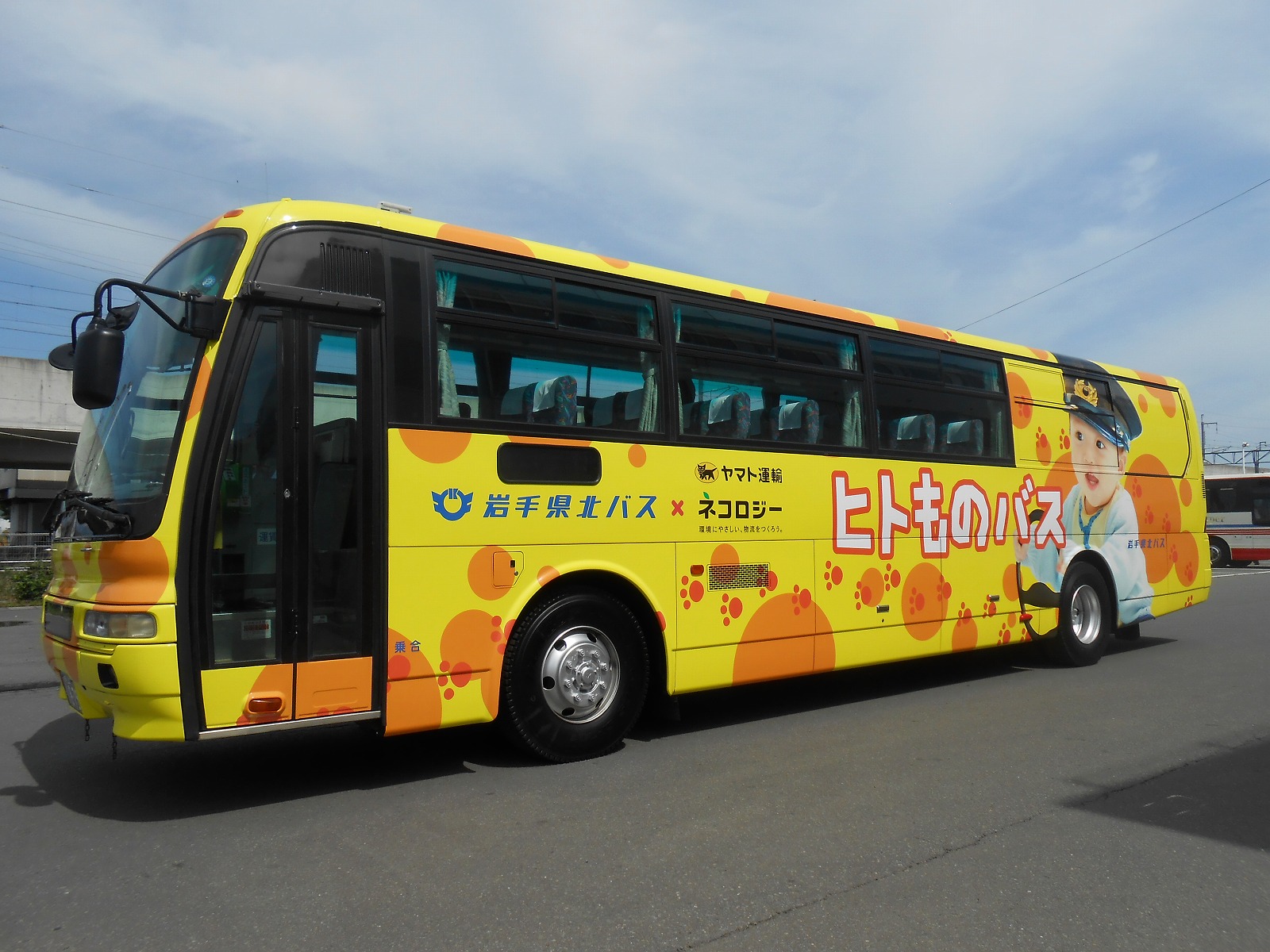
|
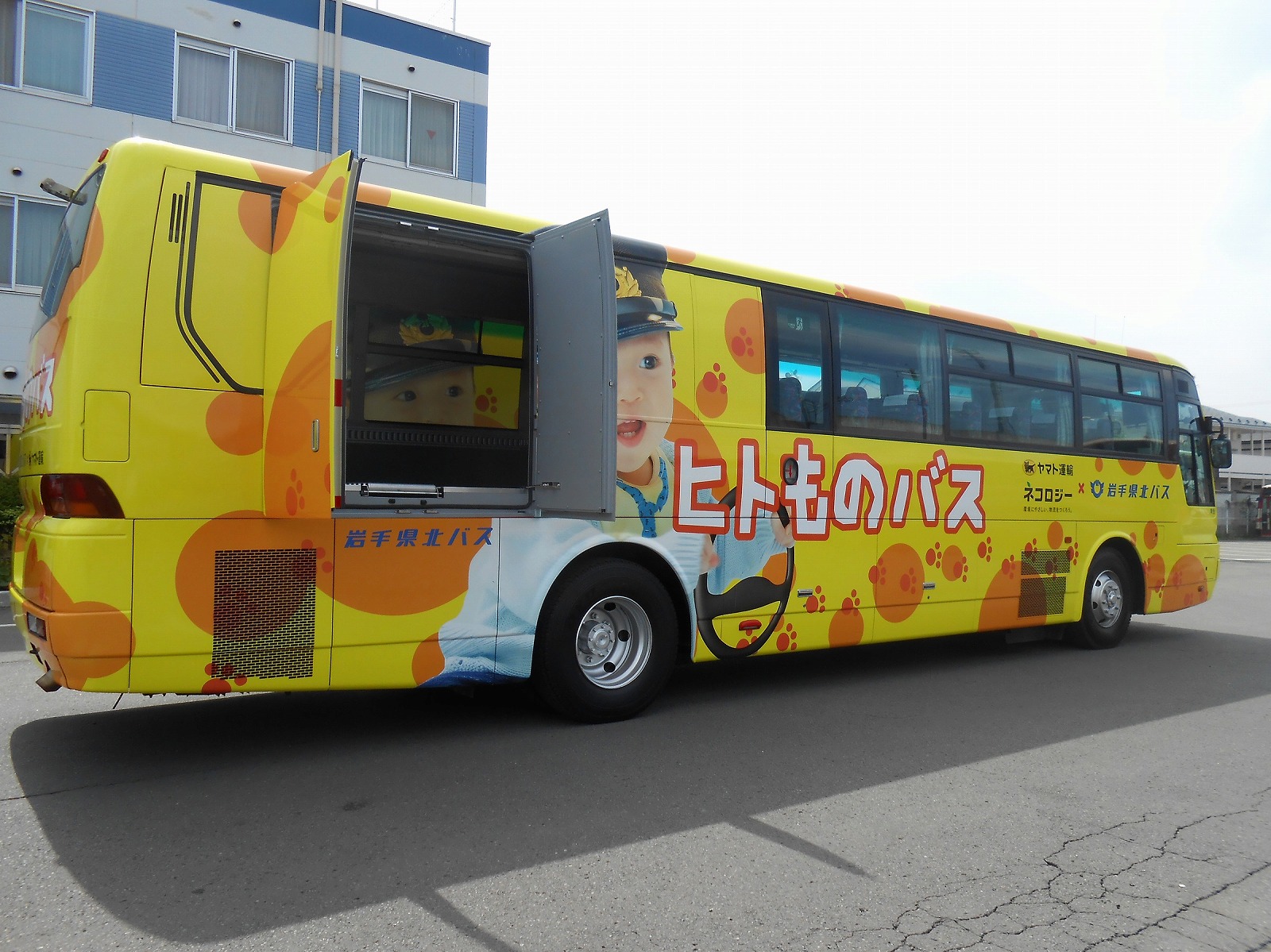
|
| Exterior of the bus (provided by Northern Iwate Transportation Ltd.) |
Luggage room (provided by Northern Iwate Transportation Ltd.) |
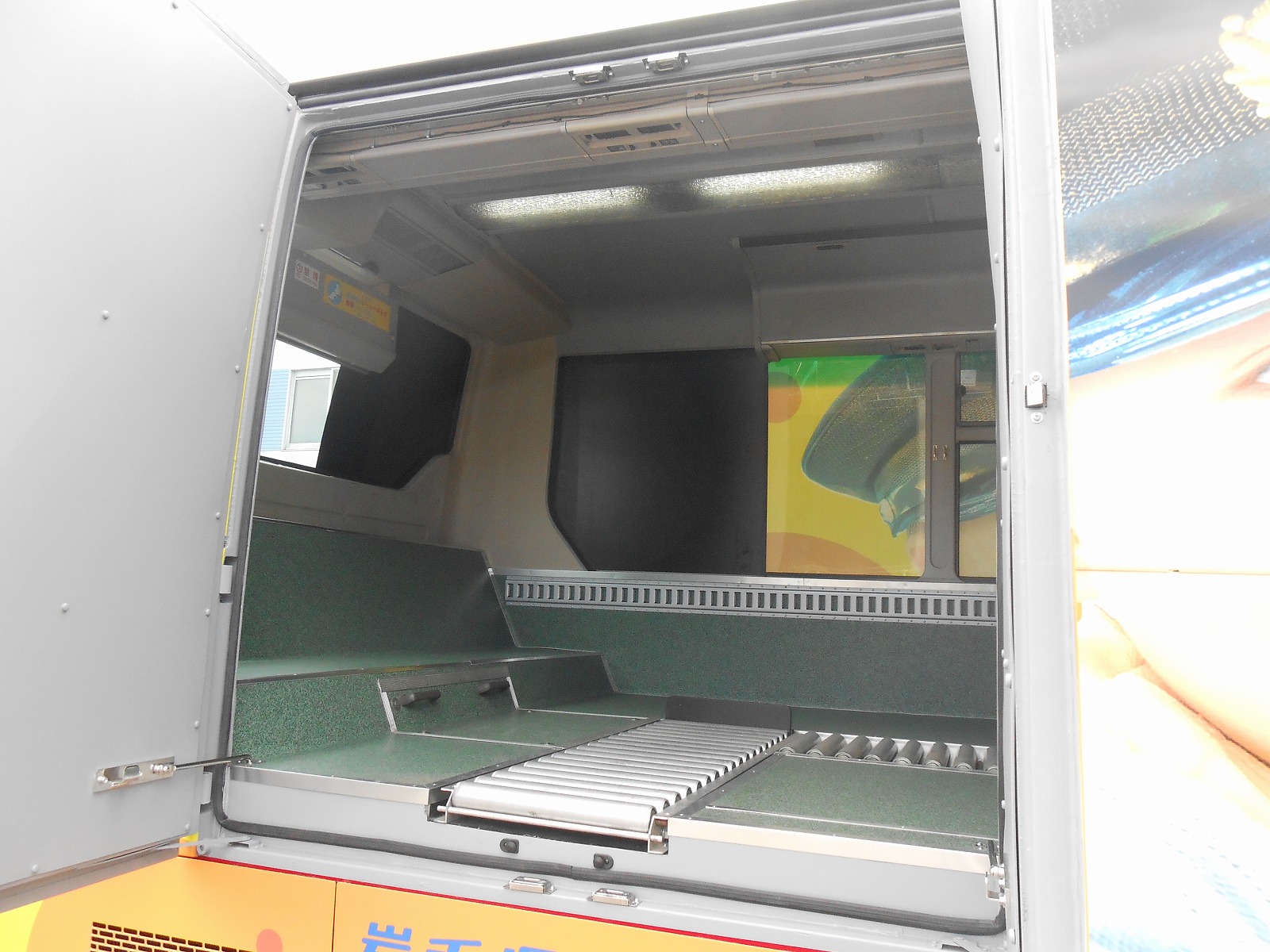
|
| Inside the luggage room (provided by Northern Iwate Transportation Ltd.) |
Omoe bus route(Miyako-Omoe penisula)
In the “Combi loading” in this route, the luggage would be carried by a local bus which is also specially modified from Miyako to Omoe peninsula. There are only few passengers using this route, so the bus has a huge space to load the luggages.
At Omoe peninsula, the luggages would be displaced to the Yamato transport luggage truck, and be delivered to the consignees. By this, the luggage delivering system would be more efficient.
Therefore, it can be said that it plays a role of regional transport rather than interbase transport.
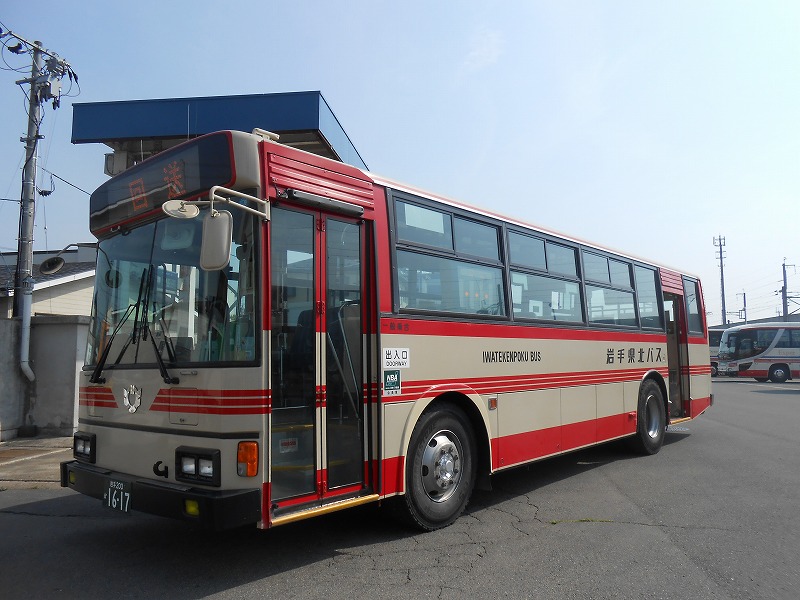
|
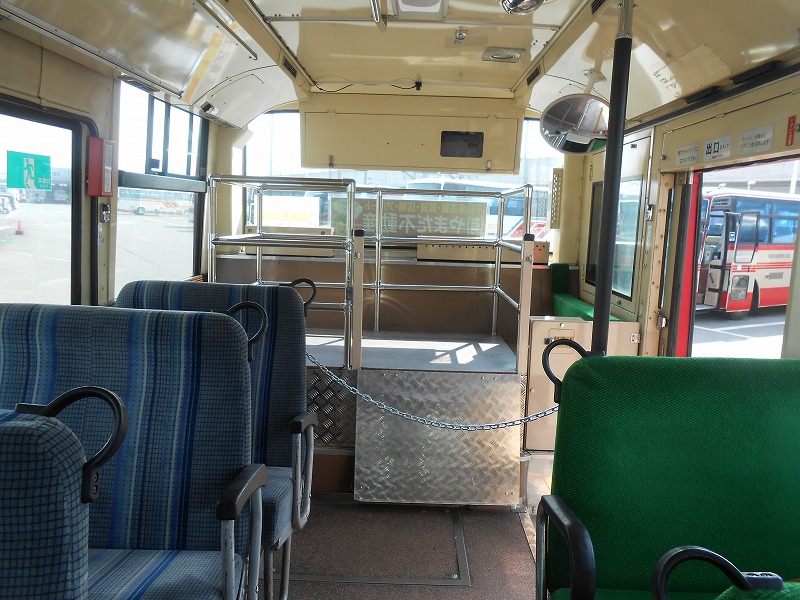
|
| Exterior of the “Combi loading” bus (provided by Northern Iwate Transportation Ltd.) |
Luggage space (provided by Northern Iwate Transportation Ltd.) |
More “Combi loading” service
In addition to the cases described above, a new “Combi loading” service, started from the year 2018, on the bus route from Miyako to Morioka. In this service, in the summer season, fresh strawberries which was Cultivated at the city of Miyako, would be delivered by bus to the city of Morioka rapidly.
By replacing the cars to bus, the delivery process would be more efficient, cheap, and environmentally friendly. In addition, the luggage, which is strawberries, are not so huge, so it could be delivered by a normal bus and the bus company doesn’t need to modify the bus for “Combi loading”, and it is very low cost. Therefore, you could say that this service has huge profits in both sides, the farmers and the bus company.
The bus company is considering that they would expand this “Combi loading” service to other bus routes.
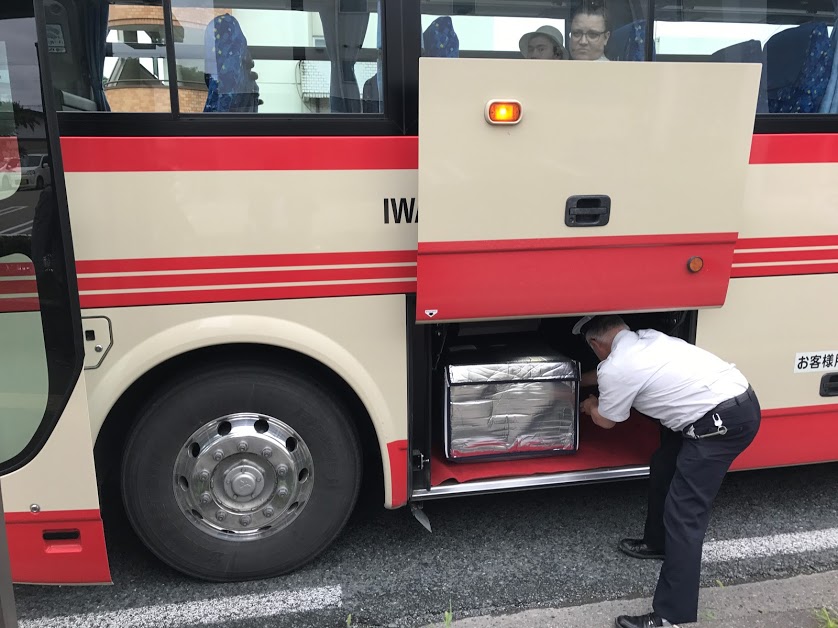
|
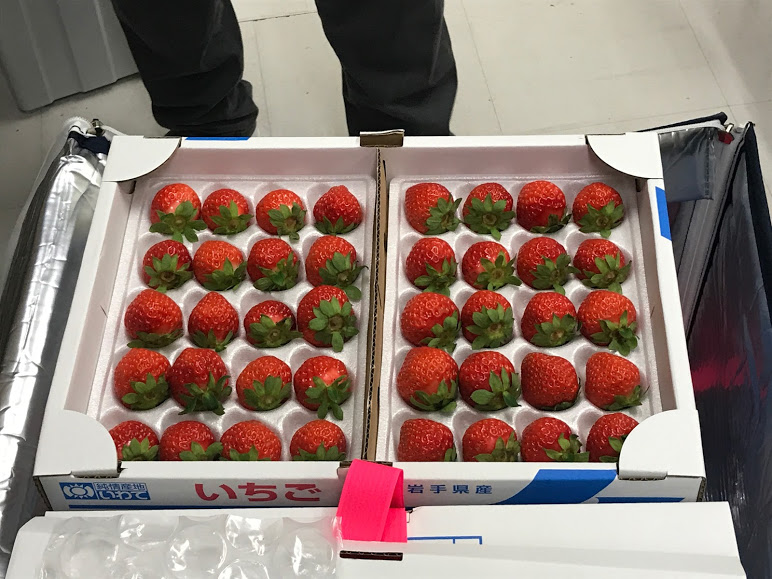
|
| Loading the strawberries to the bus
(provided by Northern Iwate Transportation Ltd.) |
Strawberries cultivated at Miyako
(provided by Northern Iwate Transportation Ltd.) |
Consideration
From these facts, these “Combi loading” services which I mentioned above, should be closed up as a “Model case”.
Firstly, this service bus has been done in a Inter-urban express bus, which has a huge demand on both passengers and luggages. By delivering many passengers and luggages at the same time, the transportation would be efficient and also eco friendly. Also, the bus company could earn a huge profit, and the profitability of the bus route would jump up. We strongly believe that this service should also spread to other bus companies which operates Inter-urban express and highway busses.
However, loading of passengers with large transport capacity, which is done by trunk bus or high-speed bus, is not widely spread. Therefore, each company should positively consider introduction.
Second, the “Combi loading” on the local bus is also important. By regaining profit to unprofitable local bus routes, it saves the route from closure. In Japan, there are many unprofitable local bus routes, so this service should also spread to these routes, and save them from closure due to unprofitability.
Finally, the “Combi loading” service without special investment is a important policy too. By the share of mutual interest between the Bus company and the luggage owners, the both could earn profit by a profitable transportation. Also, this early-stage investment is low cost, so it is easy to start even the bus company is small or unprofitable. This service should proactively started if there is a chance.
Impression
By our interview to the Iwate Northern Transportation Ltd, we knew the company’s affirmative “Combi Loading” policy.
I felt that if new assaults such as “Combi loading” would spread to other bus companies in Japan, the unprofitability of local busses would improve, and the regional transport would be more convenient for the local users.

